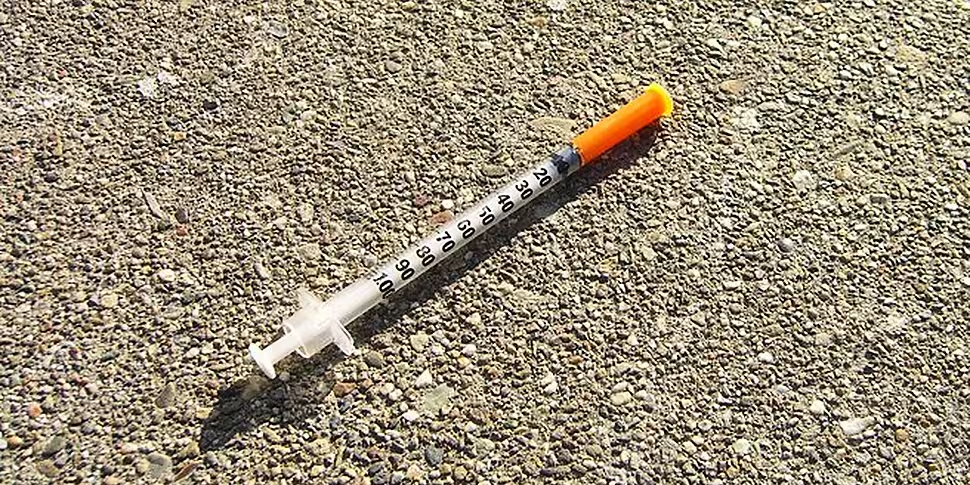The failure of injecting rooms run by the State of New South Wales in Sydney Australia is well recorded and can serve as a warning to Ireland where the suggestion to follow suit is now being pushed on the Irish people. But who will listen?
Working internationally and in Australia, sometimes with the Australian Government, has given me lots of opportunity to see what can work in decreasing drug use in a society. When it came to injecting rooms, what was made very clear was that addicts did not gain back control of their lives, according to a national Australian Government report.
The experience in Sydney showed that those presenting at injecting rooms brought their own heroin to inject under medical supervision. The result – police, knowing that addicts were carrying illegal substances, were required to make a personal decision to allow them enter the building without arrest or not. The outcome – heroin became legal on the street and created pockets of corruption in the police who now held such power over those people who were using.
Upon entry to the rooms, addicts very often inject larger amounts of heroin to get stronger effects. Knowing someone medical is on hand in case of an overdose creates a comfort zone for their drug use. After injecting they leave through the back door where prostitution and drug sales were often rife – making the area more unsafe and reducing the areas property prices overall.
Follow the money
The United Nations Convention on Narcotic Drugs bans the use of such injecting rooms -were they were known to be linked to the decriminalisation/legalisation of drugs which it does not support. The Irish Government has signed up to the UN Treaties - to open such rooms is flying in the face of that agreement. As it stands, Ireland is already being criticised for not complying with Article 33 of the UN Convention where young people are entitled to services that take them off all illicit or psychotropic substances - drug recovery services for young people here are few and far between.
The old saying goes: 'follow the money', so it's worth asking who is really benefiting from these rooms and the potential decriminalisation of drugs? Addicts often don't gain freedom from heroin by availing of injection rooms. Drugs are the second biggest trade in the world – linked with the arms trade - and unfortunately corruption feeds off the weak and powerless in this business.
Portugal is cited as a great success after decriminalising all drugs. Not so, according to the Dalgarno Institute in Australia who noted the Portuguese method of collecting evidence about their success is deeply flawed. Dalgarno notes: "The 'Silver Bullet', which is an estimate, is worded to sound like it is communicating evidence-based fact. So, when they use the term ‘evidence based’ to bolster their argument – it’s merely an evidential smoke screen.”
Leaving statistics and debates aside, parents in Ireland are struggling to prevent their children from using drugs with very little support. The over-prescription of drugs and a feeling of hopelessness leads to a feeling of helplessness. Ireland has one of the highest rates of drug use in Europe. Our lack of drug-free programmes to help people come off substances only worsens the problem. Over half of all suicides are drug- and alcohol-related. With only approximately 200 residential places, 40 detoxification units and a handful of day programmes, it's simply not enough.
Nordic know-how
Help is needed now not more drugs and ways of using them, according to Swedish drug expert Borje Dahl. Sweden, unlike Ireland, has one of the lowest rates of drug use. After a disastrous period following the decriminalisation of drugs, the Government has invested heavily in more drug-free programmes, policing and social care to deal with the issue.
A report from as far back as 2002, compiled by well-known recovery programme in Ireland ‘The Addiction Spoke’, noted that abstinence-based programmes had a higher success rate, were more cost-effective than subsiding addicts on drugs and helped people gain back control of their lives.
Using drugs and being facilitated to do so, regardless of the environment, can take away individuals' and families' opportunity to feel in control of their well-being. As communities fear for their future, Ireland needs to step up to the mark if it wants to reduce its human and financial costs. Preventing drug use, supporting recovery services and social networks is needed and possible. If there is no money for these programmes there most definitely should be no money for useless injecting rooms.
Marie Byrne is founder of the Aisling Group International, an addiction Counselling National Charity based in Ireland.









